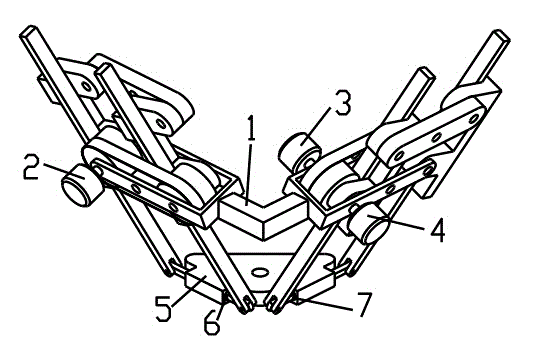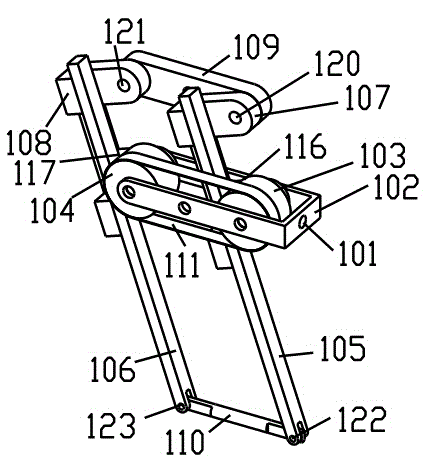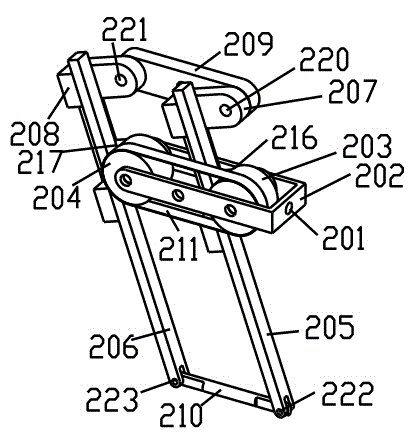Belt-driven three-dimensional translational manipulator
A three-translational and belt-driven technology, which is applied in the direction of manipulators, program-controlled manipulators, and manufacturing tools, can solve the problems of bloated robot structures and large footprints, and achieve compact overall structure, small footprints, kinematics and good dynamic performance
- Summary
- Abstract
- Description
- Claims
- Application Information
AI Technical Summary
Problems solved by technology
Method used
Image
Examples
Embodiment Construction
[0019] The technical solutions of the present invention will be further described below in conjunction with the accompanying drawings and embodiments.
[0020] control figure 1 , figure 2 , image 3 , Figure 4 , Figure 5 , Figure 6 and Figure 7 , The three-translation manipulator with belt transmission includes a frame 1, a first branch chain, a second branch chain, a first motor 2, a second motor 3, a third motor 4 and a moving platform 5.
[0021] The first bracket 102 of the first branch chain is connected with the frame 1 through the first rotating pair 101, the first connecting shaft 110 of the first branch chain is connected with the moving platform 5 through the second rotating pair 6, and the The second bracket 202 is connected with the frame 1 through the third rotating pair 201 , and the second connecting shaft 210 of the second branch link is connected with the moving platform 5 through the fourth rotating pair 7 .
[0022] The first branch chain include...
PUM
 Login to View More
Login to View More Abstract
Description
Claims
Application Information
 Login to View More
Login to View More - Generate Ideas
- Intellectual Property
- Life Sciences
- Materials
- Tech Scout
- Unparalleled Data Quality
- Higher Quality Content
- 60% Fewer Hallucinations
Browse by: Latest US Patents, China's latest patents, Technical Efficacy Thesaurus, Application Domain, Technology Topic, Popular Technical Reports.
© 2025 PatSnap. All rights reserved.Legal|Privacy policy|Modern Slavery Act Transparency Statement|Sitemap|About US| Contact US: help@patsnap.com



